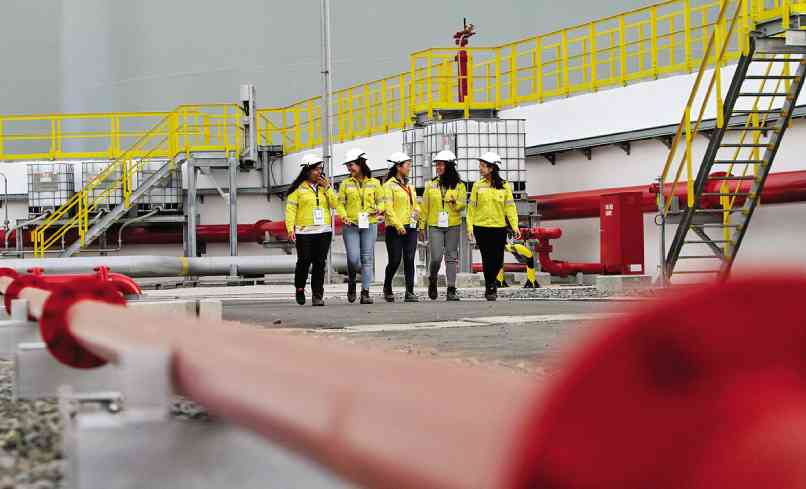A TIGHTLY guarded fuel depot inside a busy seaside port is probably the last place one would expect to see petite ladies in protective overalls milling around, but that is just the scenario almost every day at the North Mindanao Import Facility (NMIF) in Cagayan de Oro.
The sprawling fuel depot of Pilipinas Shell is home to a different breed of employees who are helping break a lot of long-held stereotypes regarding workplaces traditionally dominated by men.
Twenty-six-year-old Jennifer So has been working on the NMIF project since its planning in 2013.
A mechanical engineering graduate from the De La Salle University (DLSU) in Manila, So, in her role as project manager, has seen Shell’s commitment to a diverse workplace from the very beginning.
At one point during the facility’s construction, around 75 women comprised the overall population of 1,000 onsite workers. “I wouldn’t say it’s a huge number but it’s still considerable compared to other construction sites that you would see,” says So. Most of these female workers were welders and administration staff, as well as nurses and first aiders.
“Shell is a very diverse company. There’s no border [in that] just because you’re female, you can’t do certain things,” she adds.
After completion, the NMIF now runs on a fully automated system. However, it is still closely monitored and maintained by a core onsite operations team of 10 individuals, four of whom are females.
And it’s not only gender stereotypes that are being challenged, but age stereotypes as well, as these females are all below 30 years old just like So.
At a time when such “millennials” are taking a bad rap for being too flighty or irresponsible on the job, these Shell engineers prove otherwise with the large responsibility resting on their shoulders.
Anna Vergel de Dios is one of NMIF’s terminal operations supervisors.
The 24-year-old civil engineering graduate from DLSU mostly interfaces with the Philippine Ports Authority on vessel scheduling, as well as with external stakeholders in the community.
De Dios works closely with Merrie Veloso, one of the shore officers who receive vessels and do tasks such as daily stocks reconciliation.
Veloso graduated from DLSU as well with a degree in chemical engineering.
“It’s such a big opportunity to be working here,” affirms De Dios, referring to NMIF as Shell’s largest terminal outside of its refinery in Tabangao, Batangas. “I really enjoy how hands-on this job is. We manipulate valves and go up large storage tanks.” Throughout all these, “we handle ourselves well,” she beams.
Laboratory analyst Aisha Subosa is the youngest in the team. The twenty-three-year-old biochemistry graduate from DLSU says that there is no issue at all with them being females in a highly technical workplace. Their male counterparts and co-workers “know we are just as capable. We have the same roles. They never say ‘you can’t do it,’” she says.
Subosa works with fellow lab analyst Stephanie Ting in ensuring that the products that enter the facility are of top quality before being distributed to the market. The 29-year-old chemistry graduate from the University of Santo Tomas considers working away from home one of the biggest challenges. However, over time, she and her female colleagues have already adjusted well to such an arrangement.
Unsurprisingly, the ladies have formed a strong bond as friends in and out of the workplace. As they walk around the site performing their duties, one could easily mistake them for a gaggle of young girls. There are moments when they are yet unable to escape the demeanor that belies their youth, but their colleagues would be the first to know that they mean serious business.
After all, sometimes, it may be a man’s job, but a woman’s got to do it.


